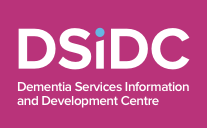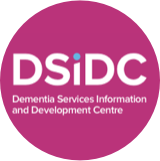Dementia is not a condition exclusive to older age, nor is it a natural part of ageing – and yet one in three people over the age of 65 will develop the condition in Ireland. Although the cost of dementia care ranks higher than stroke, heart disease and cancer combined, healthcare spend for dementia continues to be substantially lower than these conditions. Many people have an image in their mind of what life with dementia looks like, so it can be surprising to learn that many people with the condition continue to live well, socialise and stay involved in their communities for many years.
1 Dementia itself is not a disease
It is actually an umbrella term for lots of different conditions. These conditions are progressive and shared common symptoms including, but not limited to, memory loss, confusion and personality change. Alzheimer’s is the most common form of dementia, while other dementias include vascular dementia, dementia with Lewy bodies, and frontotemporal dementia.
2 Dementia is not an inevitable part of getting older
While it’s true that the majority of people with dementia are over 65, the condition is not a normal part of getting older. Age is the main risk factor, so the likelihood of developing dementia rises with age, but it’s not a given that an older person will develop it. In Ireland more than 4,000 people living with dementia are under the age of 65. In total there are 55,000 people living with the condition in Ireland, and if current trends continue, this number is set to double in the next 20 years and treble in the next 35 years. Up to 4,000 Irish people are diagnosed with the condition every year – that’s 11 people a day. The majority (63pc) of people with dementia live at home. It’s estimated that half of people never receive a diagnosis.
3 There are many reasons for memory loss
Everyone can be forgetful and struggle to put a name to a face or remember where the car is parked. There are many reasons for memory loss and confusion apart from dementia. These can include anxiety and stress, depression, an infection, thyroid disorders, vitamin deficiency, side-effects of medications and conditions such as mild cognitive impairment or a stroke. However, if you are worried for yourself or a loved one, it is a good idea to talk to a doctor as soon as possible. Being diagnosed early can help you get the right treatments and find the best sources of support, as well give you time to make important decisions about the future.
4 Dementia is more than just memory loss
Most people associate dementia with memory loss, but the condition affects people in a wide variety of ways. That might include changes in behaviour, confusion and disorientation, delusions and hallucinations, difficulty communicating, problems judging speeds and distances and losing your sense of smell. Everyone’s experience of dementia is different.
5 With the right supports and services it’s possible to live an independent and active life with dementia for many years
There are many people in Ireland and across the world who are facing dementia head on and developing support mechanisms and strategies to live well with the condition. Following a diagnosis people are encouraged to stay active, take up new hobbies, meet friends or take part in research or community activities. Both living with dementia and caring for a loved one with the condition can be extremely challenging, however, with the correct supports people with dementia can continue to live well and remain part of the community.
6 Lifestyle factors matter
Not all dementias are preventable but increasingly researchers believe that by increasing your physical activity, eating healthily, not smoking, drinking in moderation, reducing blood pressure and staying mentally active and socially engaged you can increase your chances of warding off the condition. These recommendations are also true for people who receive a diagnosis. Increased levels of education can not only delay the early symptoms of dementia, but may also slow down its progression.
7 Dementia has a bigger impact on women
With more and more women living well into their 80s, it is estimated there are in the region of 36,650 women now living with dementia in Ireland, compared to 18,350 men. The condition is the leading cause of death in women in the UK. Women are also more likely to take on unpaid caring roles for other people with dementia, and are more than twice as likely as men to provide intensive, 24-hour care.
8 Dementia is a global issue
It’s a common myth that dementia is only an issue in the western world. The largest increases in dementia expected over the next 20 years are actually in places like China, India and Sub-Saharan Africa. Dementia is a truly global health issue, affecting 46.8m people worldwide.
9 There is currently no cure for dementia
However, recent, large-scale investment into dementia research around the globe is starting to bear fruit, creating a greater potential for positive outcomes to emerge for people with dementia into the future. Exciting new research findings hit the headlines in recent weeks about drug trials which appear to have successfully cleared the sticky plaques from the brain which cause dementia and halt mental decline. The breakthrough is said to be a potential ‘game changer’ for people with Alzheimer’s.
Crucially, they also found that after six months of the treatment, patients stopped deteriorating compared with those taking a placebo, suggesting that their dementia had been halted. If shown to be effective in larger trials, it could mean the first drug to modify the progression of dementia could be available in just a few years. Although it is early days, the results of this clinical study are heartening.
10 The average annual cost per person with dementia in Ireland is estimated at €40,500
Meanwhile the economic cost of the illness was estimated at €1.7bn in 2010, and almost half of this cost (48pc) is attributable to informal care provided by family and friends to people with dementia living in the community. A further 43pc is accounted for by residential long-stay care, while formal health and social care provision, linked mainly to primary and community care, comprises only 9pc of the total cost of dementia.
In 2014 the Government published Ireland’s first National Dementia Strategy, which was very welcome, but while there has been an increased and welcome focus on dementia there is still low investment into dementia research and into dementia-specific services and supports.
11 It’s important that a newly-diagnosed individual develop strategies for daily life There are positive steps people with dementia can take to help with day-to-day life. For most people with dementia, changes happen gradually. There is time to adjust and to find out what strategies work.
Some tips include: being patient and allowing more time to do things, keep a routine, write things down – keep a diary or use a notebook, Keep important things in the same place, Get to know good times of day, eat healthily and keep hydrated and exercise.
12 Familial Alzheimer’s Disease (FAD)
This is a rare form of Alzheimer’s that is entirely passed down through families, being inherited from a parent, however, FAD accounts for just 2pc to 3pc of all cases of Alzheimer’s and usually has a much earlier onset than other types of Alzheimer’s, with symptoms developing when the person is in their 30s or 40s.
13 Dementia affects a whole family, not just the person
It is estimated that there are over 50,000 carers of people with dementia in Ireland. Women are also now two-and-a-half times more likely to become carers of a person with dementia. Caring for a loved one with dementia takes time, energy and, above all, love; it can be a long and emotional journey.
14 Stigma and prejudice are significant obstacles
The wellbeing and quality of life of those with the condition and for their families is influenced by stigma and prejudice – and it affects the provision of care to those who need it. Research shows that dementia is still the most feared health condition of our time, with people continuing to put off seeking a dementia diagnosis or opening up about the way in which living with the condition adversely affects their lives and the lives of their carers. In Ireland, research is hindered by the lack of a dementia register, making the scope and breadth of the issue unknowable.
15 Ask for help
If you are worried about dementia or worried for a loved one you can call the Alzheimer Society of Ireland’s expert helpline service on 1800 341 341, Mondays to Fridays from 9am to 5pm, or on Saturdays from 10am to 4pm. Alternatively, email helpline@alzheimer.ie, or see alzheimer.ie


